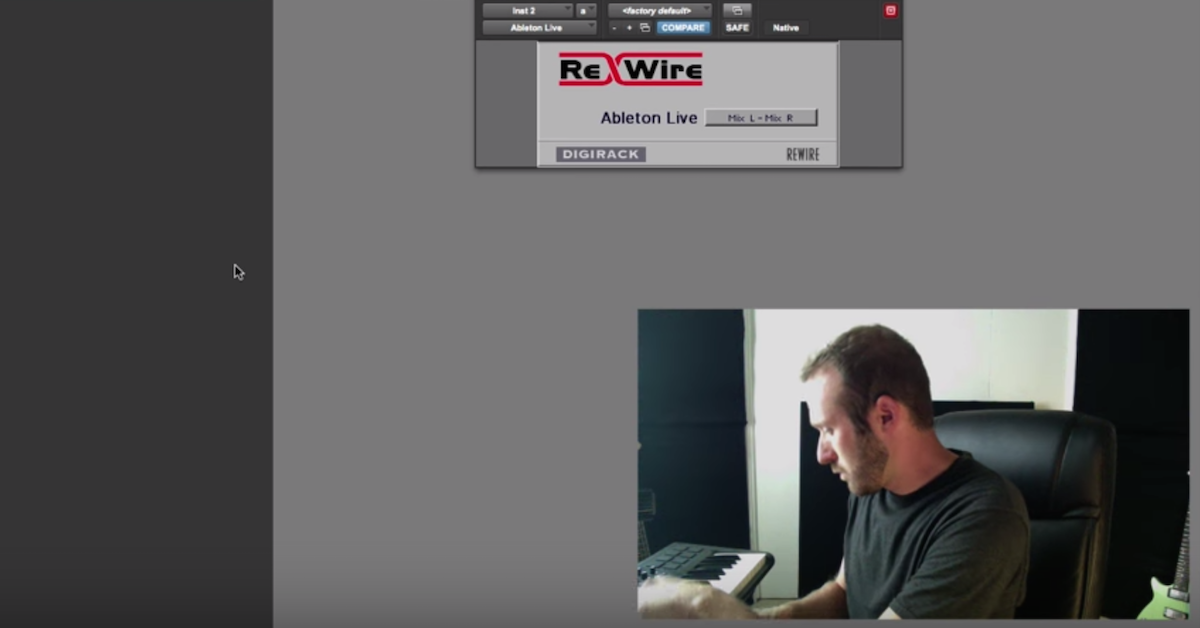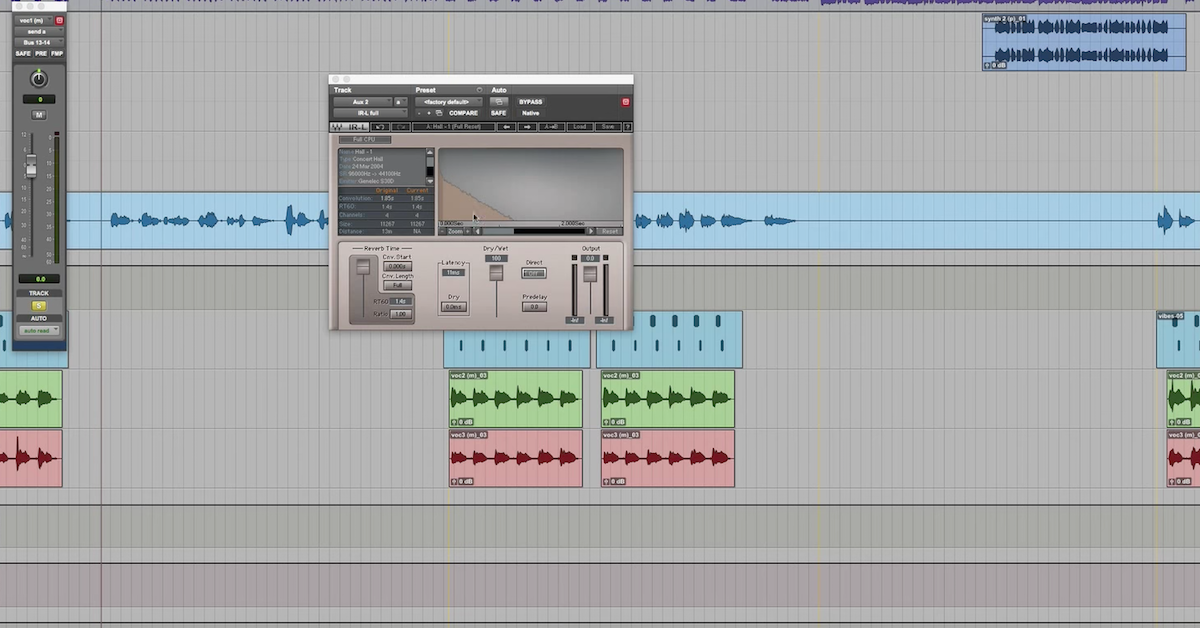How to Get a Job at a Live Music Venue
Article Content
The best jobs have no applications. There’s no “Help Wanted” sign in the window of your local amphitheater. No one’s going to ask you if you want your dream job — you’ve got to grind for it. The first step in landing a job at a music venue is to know what you’re looking for.
Not all live sound jobs are created equal. Some come with benefits and a weekly paycheck, others are cash under the table at the end of the night. Some require you to show up at 6am wearing a tie, and others just ask that you stay sober enough to remember the guitar solo in the last song. They all have their pros and cons, and you’ll probably try your hand at more than one of them during your career.
Bars
Bars are an easy place to land your first sound gig. There are usually plenty of them in any given city, and most of them have live music on the weekends. Plus, most people are there to drink — the band is merely an afterthought, so it’s a great place to make a few “learning mistakes” with minimal consequences.
As far as the work is concerned, you’re known as the “sound guy/girl” and you’re in charge of literally everything related to the show; load in, set up, soundcheck, monitors, front of house, lights, tear down, and sometimes even paying out the bands at the end of the night. It sounds intimidating, but there tends to be less equipment since the space is so much smaller. Sometimes you’re only dealing with a few mics and switching the lights between 3 colors all night.
But, you’re usually the only person on-site with any sort of technical experience whatsoever, so if anything does go wrong, everyone will expect you to know how to handle it. The pay (~$50-$100) is usually cash under the table at the end of the night, and you can typically get a meal and a few drink tickets out of the deal too.
To get a job as a sound guy/girl at a bar, simply talk to the manager/owner about who’s in charge of production. Most likely, the owner contracted a freelancer or small company to install the sound system, and supply engineers to run it. If not, the bar owner probably just “knew a guy”. Either way, get their contact info and reach out!
Clubs And Theaters
Clubs and theaters are built for concerts, so they have a more specialized staff. By no means are these the only positions available — it takes many, many moving parts to operate a venue, but these are the most common technical jobs. Not all clubs have all of these positions, either. What’s important is that they have the people they need to make the show a success.
If you’re just starting your career as a live sound engineer, you’ll most likely start as an intern, runner, or stagehand. While all of these jobs are basically interchangeable, there are slight differences.
Intern: Does literally whatever they’re told. Fills in where needed. Unpaid. Working for the experience and hoping to move up the ranks.
Runner: A unique member of the venue staff somewhere between the kitchen staff and the production staff. The runner’s job is to get stuff. Pick up the band from the airport. Drop them off at their hotel. Find them sushi at 3 am. Pay varies greatly and is almost always under the table.
Stagehand: General grunt. Load and unload gear. Set up and tear down equipment. Treated slightly better than an intern. Usually assists in the department they’re interested in working (lights, sound, stage). Pay is generally around minimum wage. After a few months, if you’ve proven yourself to the venue, you may be given a shot to move up the ranks a bit. Expect to make around $75 – $150 per night in these positions.
If you’re interested in lighting, you’ll be given a chance to work as a lighting technician alongside another tech for a night. Keep it up and you’ll start running lights for the opener, and eventually you’ll start running shows as the lead lighting tech.
If you’re interested in sound, you’ll go through a similar process in monitor world. Monitor world is where the monitor engineer controls what the artists hear on stage through their wedges and in-ear monitors, which is different for each performer, and drastically different from what the crowd hears. For some reason, it pays less than front of house, and there’s a stigma about it being less cool.
If monitor world controls what the band hears on stage, the front of house engineer controls what the audience hears. You’re in charge of mic selection and placement, soundcheck, and of course, mixing the show!
Finally, if you have a basic understanding of what goes on in the lighting and sound departments respectively, you may want to explore the stage manager role. The stage manager is the liaison between the venue and the band. You tell them when and where to load in, set up, and load out. You’re also in charge of any staging needs, like risers, backline equipment, and scenery. Your job is to keep all the cogs in motion, but most importantly, you get to boss the stagehands around!
Clubs are a great place to work because there are so many talented people to learn from. You have the opportunity to explore every facet of what it takes to put on a live show, all under one roof. Pay is usually cash under the table at the end of the night, but some of the larger venues have a payroll, and may even include benefits. To apply for a position at a club or theater contact the venue and ask to speak to their production manager.
Production Companies
If working nights and weekends isn’t your thing, you may want to work for a production company. Production companies are service providers to businesses, and supply stages, sound and lighting equipment, and technicians to operate them.
If you get hired you’ll work as an event technician and do various jobs depending on the day. There are downsides to working with corporations instead of bands, though. You’re expected to wear a tie, and all of your temporary installations need to be so clean they could be permanent. Messy cable runs and poor wrap jobs will get you fired. It’s a much stricter environment. The pay is pretty good though (sometimes upwards of $40/hr!). It’s usually hourly with a guaranteed minimum, time-and-a-half overtime, and benefits, but the hours tend to be very early, and the days are very long.
Oftentimes as a stagehand, you’ll have an early morning call time to load in and set up, then be “cut” for the afternoon, and have to return at the end of the day to tear down and load out. Techs like the sound engineer or lighting techs are allowed to show up after load in and leave before load out.
To get a job with a production company simply find their website and apply within. The trick is to know what to google! Some production companies are national, while others are local. Some focus on hotel or corporate A/V, while others specialize in festivals.
Freelancing
Finally, if you don’t want to be tied down by the man, you can be your own boss. Being a freelance sound engineer can be very prosperous if you do it correctly.
Some choose to work directly with a band, and tour the country in different venues every night as a “guest engineer”. You don’t have to buy any equipment this way, but you have to find a band willing to pay your wages (which varies greatly) and take you on tour with them, which can make it difficult to make consistent money year-round.
Others choose to buy their own sound equipment and rent it to venues and bands, along with their services as an engineer. The problem is the massive amounts of overhead and storage fees. Not to mention, it somewhat limits you to temporary events like weddings and parties, instead of regular shows. Your rate will depend on the services you provide.
Started From The Bottom
The key to getting a job at a venue is understanding that you’re going to have to start from the bottom and earn your way up the ranks. You get hired the same way you do at any other job — talk to the person who cuts the checks.
If you talk your way into a face-to-face meeting, bring a resume with all of your relevant experience and be prepared to demonstrate your skills. Venues and production companies have been known to quiz people on the spot to test their abilities. It’s probably a good idea to bone up on:
- Stage directions
- Signal flow and gain staging
- Frequency ear training (say, have you heard of Quiztones?)
Ups and Downs
No matter the route you take, remember that a career in live sound has a lot of ups and downs. Summer tends to be a very busy season. Lots of artists are out touring, festival season is in full swing, and special events are being held every weekend. Winters tend to be very slow. Around Thanksgiving, work tends to dry up as everyone takes time off for the holidays. Things usually don’t pick back up until St. Patrick’s Day in March.
Keep this in mind when looking for gigs. Everyone needs work in the winter, but there aren’t enough shows to go around, and summer is all-hands-on-deck. Your best bet is to secure some work in the spring. Venues and production companies will be looking to hire in the spring to train their staff for the busy summer season. If you prove yourself as an essential part of the team, you’ll have some work for yourself in the winter too. It always pays to have a couple side hustles going…just in case!
Remember, this job is just like any other, there will be days when you love it and days when you don’t. The hours are long, the customers are rude, and your boss will make you unload a semi full of very heavy, very fragile equipment at 3 am on Christmas Eve, but it’s worth it. There’s no feeling like a putting on a good show — just ask any successful musician, they’ll tell you it’s better than any of the drugs they do…
Be on time, know how to wrap cables in your sleep, and be able to brew a killer cup of coffee, and you’ll do fine. Oh, and don’t forget to bring protection!





